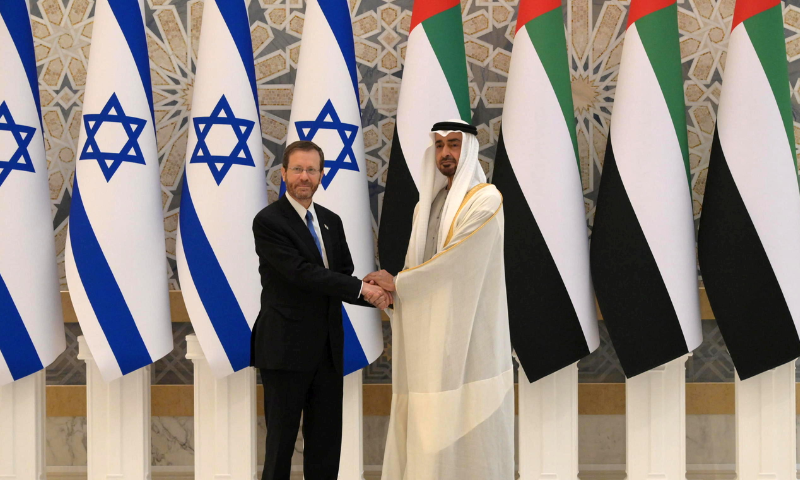Dan Shueftan
Tablet, Nov. 28, 2022
“Arabs fully realize the magnitude of the Iranian determination to hegemonize the Middle East at their expense and the effectiveness of Iranian brutality and sophistication in the pursuit of that objective.”
Despite what most Western readers have long been conditioned to assume, the Middle East and Arab-Israeli relations are a source of good news these days. The region is still violent and unstable; the conflict between the Jewish state and its radical enemies, Palestinians and others, is far from over; the threat of the Iranian revolutionary regime may be greater than ever. However, a new strategic alignment that has lately been emerging promises a better chance than ever before in modern history for regional states to isolate and stand up to the radicals who continue to threaten the existing order. The old structure of the Arab-Israel conflict that defined the Middle East for generations—during and shortly after the Cold War—is now being replaced by a strengthening Arab-Israeli coalition against Iran and its radical Arab proxies.
Since the 1930s, Arab radicals—the likes of the Mufti of Jerusalem Haj Amin al-Husseini, Gamal Abdel Nasser, Moammar Gadhafi, Saddam Hussein, Hafez al-Assad, and Yasser Arafat—managed to intimidate other Arab regimes and mobilize them, often against their own national interests, in a fruitless and destructive struggle for the “liberation” of Palestine from the Jews. Cooperation with Israel was condemned as treachery, and evasion of confrontation with her was considered cowardice. This imposed pan-Arab solidarity stifled regional development and repeatedly drew the region into wide-scale wars which occasionally pushed the Soviet and American superpowers to the brink of nuclear confrontation.
For Israel, pan-Arab solidarity could have presented a clear existential threat. A small, vulnerable and isolated state could hardly survive in the long run against a radical and aggressive Arab leadership that can mobilize the enormous resources of the entire Middle East—oil, gas, money, markets, international clout, control of essential waterways and impact on Muslim communities the world over.
The erosion, restriction, and ultimately the abolition of aggressive regional solidarity targeting the Jewish state was the supreme objective of Israel’s regional strategy since its inception. While the goals of regional peace and cooperation sound much more noble and appealing, every clear-sighted realist knew that this romantic dream is unattainable in this historically violent and unstable region. Besides, breaking up attempts at regional solidarity was an indispensable precondition to any progress toward peace or its lesser cousins: Arab states would consider accepting Israel only following a painful recognition of the failure of the attempt to erase it at an acceptable cost.
Israel’s grand strategy of breaking up aggressive Arab solidarity scored a crucial success in its 1947-49 War of Independence. A preemptive alliance with King Abdallah I of Transjordan broke up the joint Arab invasion on the day the Jewish state was established, thereby partitioning Mandatory Palestine between Israel and the Hashemite kingdom. Without this alliance, Israel may not have survived the coordinated Arab assault in the early part of the war, it would not have withstood the pressure to internationalize its capital city in Jerusalem, and it could not have concentrated all its forces in the south to confront the Egyptian expeditionary army. The resounding Egyptian defeat that followed forced that pivotal Arab state to betray all other Arab invaders in February 1949, by signing a separate agreement with Israel, practically enabling her to dictate the terms of the armistice and the strategic outcome of that formative war. … SOURCE


